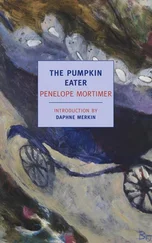It was many hours later when the fire was finally extinguished. A steady dawn was a pale insipid hesitancy behind the swirling stench. A host of people, some crying, some hugging, hurried around Emeline and the earl on the grassy slope, watching the new day shimmer and wake beyond the destruction of their home. But the great stones still stood, and although the windows were now empty and where there had been glass it was shattered and gone, the walls had not tumbled and the huge wings of the castle’s separate towers, the stable blocks, the guards’ houses, the cobbled bailey, the smaller courtyards, and even the arched entrance with the machinery for the portcullis and drawbridge, were all untouched. Yet up the walls of the Keep were the scorched and blackened fingers marking the passage of the flames. And where wooden outhouses had backed the Keep with a ramble of pantries, butteries, breweries, storerooms and bakehouses attached to the kitchens, there the fire had consumed everything and left only smouldering sticks and a rubble of paving.
The earl was carried on a great canvas litter, four men to heave him on to it and six to lift it and bear him away. Emeline stayed where she was. Her eyes smarted as the putrid yellow smoke, carried by a gusting wind, billowed in gradually dissipating clouds, and coughed as she swallowed soot. But when the servants begged her to come under cover, and said they would lead her to where it was safe, she refused. It was only open air that seemed safe to her now.
The fear remained. She felt it like black stones filling her lungs and belly, and she smelled it amongst the ruin. At first she was dazed, waiting quietly without consciousness of time. But then, as the paralysis of terror faded, she began to shake, so violently that she could not stand. Finally she cried, at first unaware of it, and then uncontrollably so her throat hurt and she felt sick. The tears swept down her cheeks, streaking through the soot, and leaving her utterly exhausted.
Eventually it was the steward, whom she recognised although his face was covered in ashes and his clothes were scorched, who came to find her. “My lady,” he said, bowing even though she was huddled at his feet. “I have been requested to inform you regarding your family, my lady, that they are well and their quarters quite untouched by the fire. They have been informed of your safety and have gathered in the western solar. I am further instructed to take you there, should you wish to join them.” He waited a moment, and then added, “But forgive me, should you wish to see his lordship first, my lady, I will lead you to him instead.” He paused again, before hurrying on, “I should warn you that the young lord is grievously injured, and will need some care, and for some time to come I fear. The castle barber is with him now, but the Chatwyn doctor is much injured himself and needs attention. A boy has been sent to Leicester to bring back both town doctors, though sadly we cannot know how soon they may arrive.”
Emeline stood slowly, stiffening her knees and testing her balance. Then she took a deep breath while imagining her parent’s inevitable questions. She could visualise her sister’s frightened face, the avid interrogation, and the criticisms of everything that had, and had not happened, should she admit to it.
She sighed. “Then you had better take me to my husband,” she decided.
It had not been the wedding night she had imagined.

They had taken him to the western wing. Here, at the greatest feasible distance from the ruined Keep, the smell had barely invaded within, nor had any damage been sustained beyond one shattered window. The mighty oak doors had been shut fast against all danger, and although buckets had been filled from the moat and still stood adjacent, they had not been needed.
At her request the steward led Emeline to a large bedchamber usually reserved for guests, and there she entered quietly amongst a stream of bustling servants. They brought possets, jugs of water and clean cloths, linen towels, trays of herbs, fresh bandages and cups of hippocras. Emeline brought nothing but herself, but tiptoed to the bedside, and sat there on the stool placed for her.
The bed, unlike his own where she had passed the first half of the night, was neither wide nor deep. The covers were all pulled back and the patient lay exposed, flat on the uneven lumps of the fleece below, his eyes closed. The bed curtains, tied carefully away against the headboard, were dusty and of indistinct colour. Across the chamber a small fire smoked fitfully and Emeline felt that the smell of it alone would disturb a man already injured by flame. She said nothing, and watched where, across the other side of the bed, the barber surgeon was carefully removing his lordship’s braies. She had never yet seen any man entirely naked. That the first should be her husband seemed fitting, but Emeline blushed, and lowered her gaze to her lap.
The surgeon called her attention back. “My lady, I fear you need doctoring yourself. Your hair – the welts –”
She raised her fingers tentatively to her face and whispered, “I didn’t realise. But it cannot be serious. I think I am quite unhurt.”
Removing each thread of ruined ribbon from the fastenings of the braies, the surgeon again concentrated on his work, lifting the scraps of material where the heat had almost seared the linen to the man’s skin. Nicholas did not move and Emeline thought him unconscious. His breathing was steady though shallow, but where the skin was already shedding, his body was glazed as if boiled. The surgeon murmured, “This is not my proper business, my lady, and I am not qualified. But someone must help, for Doctor Ingram is sore sick and must be doctored himself. I can only hope the medick arrives from Leicester before our lord sickens further.” He sat back a moment, the charred shreds held nervously between his fingers. “But one thing I can assure you, my lady, that no amputation will be needed as long as proper care is given now, for infection is the danger where the skin is broken, and evil humours may creep in.” He looked up again suddenly, staring across the bed at Emeline. “Will you take over, then, lady? Have you ever nursed folk, and attended to your family? Do you know the use of herbs and salves?”
She did not. She said, “I will try and wash away the burning, and the ruined skin, and the ashes and soot. Will that help, do you think?”
“It may.” The barber sank back in disappointment. “I had hoped another – I fear to do harm, you see. This is not my skill, my lady, nor know of any in the household who could do better except our apothecary, who is now tending his lordship the earl. Washing a body may bring greater risk, but his lordship will surely not catch cold with that fire still merry in the grate and all the windows well closed. Meantime I shall interrupt the apothecary and get him to the Spicery for ointments. A cream for burns first I hope, and if not, perhaps butter will suffice.”
“I think,” Emeline mumbled, “that all the kitchen outhouses are destroyed, and their contents with them. But I will do what I can,” and leaned reluctantly over her husband, touching the great blisters across his chest. Some were raised, pus filled and virulent, others raw and bloody. She was glad he slept, both for his relief, and so she might touch him without his eyes on her, watching her embarrassment.
The barber hurried off, clearly thankful to relinquish responsibility and to search for a lardy poultice, goose grease, or anything someone might suggest as a treatment for a man badly burned. “’Tis likely Mister Potts is still with the earl hisself, my lady,” he stated as he pushed past the other scurrying servants, “and I shall go there first. I will be back directly, with whatever he tells me will be efficacious.”
Читать дальше












